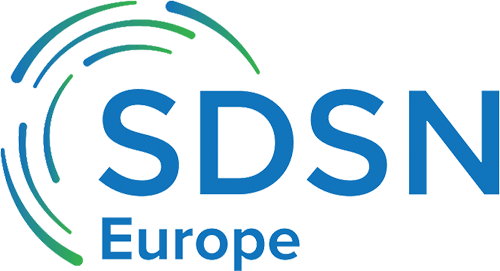
Angelo Riccaboni, School director, Co-Chair of the SDSN Europe, held the eighth lesson of the phase 2 of the Siena International School on Sustainable Development about “The Grammar of Sustainability, the alignment of agrifood companies to SDGs”. Here are some of the key points to remember:
- According to the SDSN Sustainable Development Report 2021, major challenges to face in all of the SDGs still remain across the world. Only a few countries, but only for a few goals, are on track to achieve the SDGs by 2030.
- Not only the individual countries index ranking, but also the spillover effects into other contexts should be considered. In our globalized societies, the actions of some countries often have spillover effects on others.
- The challenges of climate change are particularly relevant for food systems. Food systems are influenced by climate change, but they also contribute to it. Food systems have significant implications for human health, soil, and the environment. Moreover, the food system is also inequitable: 10% of the global population still faces hunger, obesity is on the rise, and 65% of people under the poverty threshold work in the agricultural sector.
- The Mediterranean region is particularly vulnerable to climate change and this vulnerability is reflected in its food systems. Across the whole region, regardless of income level, countries are still facing significant to major challenges in SDG2 “Zero hunger”.
- The COVID19 pandemic has highlighted the link between nutrition, human health and the environment. In addition, both the pandemic and the Russia-Ukraine conflict have exposed the fragility of food value chains, with serious impact on food security.
- Price shocks, supply chain disruptions, fertilizer shortages and geopolitical decisions have often provoked the dilemma in choice between sustainability and food security. However, it is essential to remember that climate change does not wait, and that failing to prioritize long-term sustainability may have negative consequences in the near future. Food systems, thus, must be transformed to make a more resilient and sustainable society.
- Agrifood SMEs and smallholder farmers play a fundamental role in mitigation as well as in food security, particularly in low and middle-income countries.
- Major challenges that food systems face are emissions reduction, sustainability measurement, and innovation adoption.
- We currently have projections for the potential reduction of emissions from a variety of carbon farming practices. In terms of economic, social, and technological dimensions, these interventions are both effective and feasible.
- Reduced conversion of forests and ecosystems, carbon sequestration in agriculture, and ecosystem sequestration are among the most effective mitigation practices in agrifood systems.
- The high fragmentation of measurement tools and frameworks makes measuring sustainability difficult. We need to spread the “Grammar of Sustainability,” develop better measurements of product impacts on the environment and health, and develop and implement better business sustainability measures. Some sustainability measurement tools (PEF, EcoScore, Nutri-score) are often highly comparable but lack the capacity to capture complexity. Others have the capacity to capture complexity but lack comparability (B-Corp). Therefore, we need frameworks and tools that are both comparable and capable of capturing complexity.
- Technology and innovation can contribute to making food systems more sustainable. Food availability and access can be improved through technological, organizational, and social innovation, as well as reduced natural resource use and increased profitability. Drones, smart IoT, real-time sensor data, blockchain, and new breeding techniques are examples of such innovations.
- The Italian food system could be seen as a model for a resilient and sustainable food system. It is composed of SMEs that are highly connected and cooperate across short supply chains and are willing to participate in international value chains. In addition, the Italian system is characterized by its ties to local territories and communities, as well as by the sustainability of its organic production, which grew by 41.7% between 2010 and 2020.




